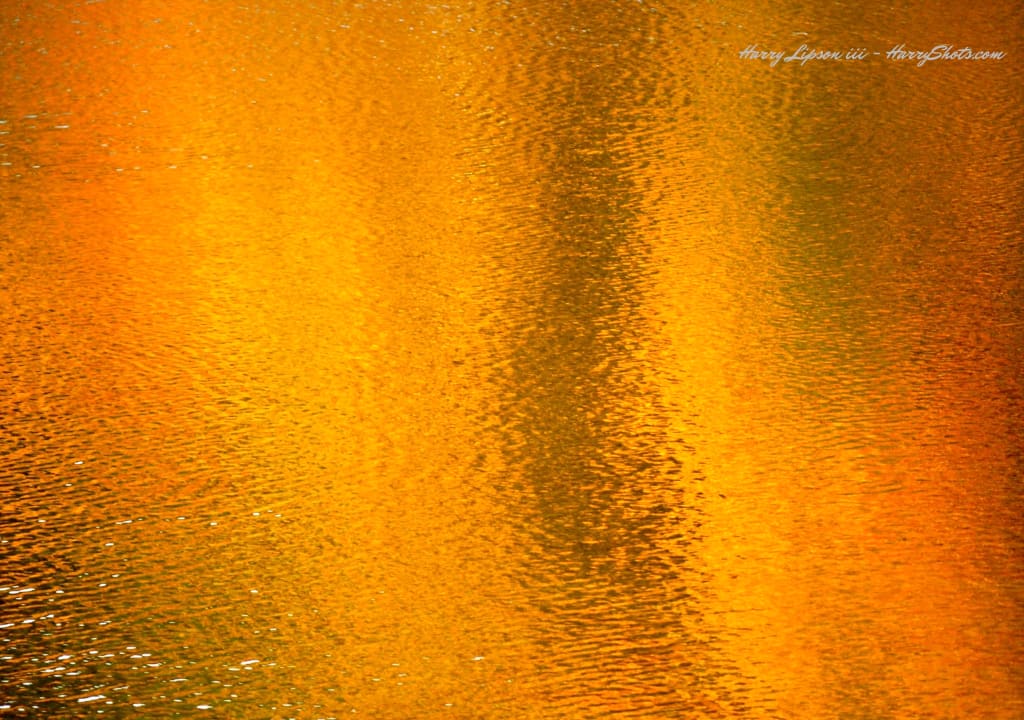The Vastness and Strangeness of Nature: Death, Loss, and Grief in Thoreau's 'Walden'
"Men begin digging their graves as soon as they are born."

A primary resource for all things nature and experience, Thoreau’s 1854 narrative account of living two years alone on Walden Pond, Walden works to challenge the reader’s perspective on nature and to find one’s own narrative in it. Thoreau’s goals in the book seem to teeter on the edge of persuasion, though his eloquent accounts of his experiences leave the reader with no real advice—Thoreau has written a book defining the experience of living simply and naturally as truly his own, and through a particular passage in the book it is apparent that he has greater motives beyond retelling his reclusion into the Walden woods. This particular passage in the middle of the book ties in a possible underlying theme Thoreau was possibly unaware of: the effect of nature on the emotional and physical manifestations of grief. Through careful analysis of the text, it is likely that many of Thoreau’s experiences in the woods are unconscious reactions to the presence of loss, death, and inevitable change in his personal life. Along with the interdependence of nature and experience, another idea arises in Walden, wherein the integration of nature and environment in Thoreau’s writing complicates the underlying theme of his own grief, and grappling in particular with the death of his dear elder brother, John, and later, his father.
The passage in “The Village” which encompasses the underlying theme of death as an inevitable effect on nature, also connects many prior and later passages in the book to grief as one of Thoreau’s greatest responses to living at Walden. In the chapter, Thoreau notes that the path from his hand-built house into the village is largely hard to find in the snow, and recounts that that which is lost “[is] a perplexity [infinitely greater]” (166) than any previous difficult experiences he has had at Walden. Thoreau says we are, quite literally, “constantly, though unconsciously, steering like pilots by certain well-known beacons and headlands” when on our journey, and even though we do not recognize landmarks or hints of the way home, we are always conscious of “the bearing of some neighboring cape”—suggesting that there is always something we hold onto even when we are lost. For Thoreau, the grief for his brother’s death he was experiencing was his own groping through the forest “completely lost,” and he figures that perhaps it is better to be lost than found, so that “not till we are lost, in other words, not till we have lost the world, do we begin to find ourselves.” It is once Thoreau himself realizes that he is feeling lost in grief that he realizes where he is “and the infinite center of [his] relations” with nature. Thoreau’s unconscious idea that nature poses a possible threat to his grief and “relationship” with it is highly apparent during his encounters at Walden.
In moments when Thoreau is engrossed in “the labor of his hands” while building his house on Walden Pond, he seems to be exploring the connection between nature and death on a literal scale. At the very start of the book, he questions the “misfortune” of people inheriting land and animals, instead of working for them, and asks, “Why should they eat their sixty acres when man is condemned to eat only his peck of dirt” (3), and says men are literally buried by labor and necessity, claiming that they “begin digging their graves as soon as they are born.” This notice of metaphoric self-burial and “misfortune” of man reveals immediately Thoreau’s preoccupation with death, as he knows “the better part of the man is soon ploughed into the soil for compost.” Like his focus on the ground and the earth, Thoreau reiterates a similar primitive need to dig deeper, to “drive life into a corner” and “reduce it to its lowest terms” (88) when discussing why he went to Walden.
In a similar attempt to get to the bottom, so to speak, of nature’s and life’s purpose, Thoreau asks yet more questions which show an incredibly subtle anguish in regard to feeling mortally lost and sans “beacons and headlands” without his dear brother, asking of nature, “But why do men degenerate ever? What makes families run out?” (14), and still, asks “why” of death later on in the chapter “Economy,” “Why has man rooted himself thus firmly in the earth, but that he may rise in the same proportion into the heavens above?” (15). He expresses a similar need to get almost inside the ground and be that close with the dirt when digging his cellar, and “took particular pleasure in this breaking of the ground,” and dwells on the sort of “dent in the earth” his house has made (43). While hoeing his rows of beans in “The Bean-Field,” he realizes he has “disturbed the ashes of unchronicled nations” which “lay mingled with other natural stones” (153), believing that as he digs he is revealing the past and its lost peoples. It is during moments of building and gardening and in times of the most silence that Thoreau expresses concretely his subconscious preoccupation with questioning the earth and experiences a sort of joy in digging and getting as close to “the bottom” as he can get. His literal grappling with the idea of remorse for what is lost while building on Walden is concluded in his admittance that his “only serious objection to coarse labors” is that “with years I have grown more coarse and indifferent” (209), and thus, broken down by years of grief.
Thoreau gets even closer to nature while at Walden in moments where the connection between death and nature are less tangible, as he pushes for relief from his intrinsic sorrow. He expresses a belief in “Economy” that space for change and growth comes out of wide breaks in time where we are not constantly working and thinking, asking, “How can [a laboring man] remember well his ignorance—which his growth requires—who has so often to use his knowledge?” (5), a seemingly surprising tactic for a hands-on Thoreau. Here, he struggles with having such a broad “margin” of time during change—so much so that he becomes hung up on his lost dog in “Economy,” recounting, “I long ago lost a hound, a bay horse, and a turtledove, and am still on their trail,” and reminiscing further the loss of something important to him, and about the shadow of something that once was. This space of time which emphasizes loss and sorrow is perhaps most prevalent when Thoreau asks, “What sort of space is that which separates a man from his fellows and makes him solitary?” (129), a rudimentary question for him; at the root of a lot of Thoreau’s experiences with being in solidarity on the pond is the idea of separation and change from what he has been used to.
While at Walden, Thoreau makes many references to death while talking about nature, most of which convene in a similar pool: that death-driven sadness that occurs in nature often mimics our own. For Thoreau, the animals, waters, and plants that surround him at Walden are experiencing their own grief as seasons change, such as “the voice of wailing” which seems to come from the slave plantations during the 1850s (74). The owls that chirp from the trees above Thoreau’s house even sound “like mourning women,” their song a “solemn graveyard ditty” which delighted him, as he “loved to hear their wailing…reminding me sometimes of music” (121). The hooting owls at night bring him a “melancholy” feeling with their wails like “dying moans of a human being…animal, yet with human sobs,” and remind him also “of ghouls and idiots and insane howlings.” Walden Pond itself begins taking on decomposing qualities for him, as he notes that a bather lying on the bottom of the pond would appear “of an alabaster whiteness, still more unnatural,” and with limbs which are “magnified and distorted” (172). For Thoreau, the nature that surrounds him starts looking and sounding like the very embodiments of grief, a sentiment he considers when he talks of “the black kernel of the night” which reigns over Walden after sundown, and suggests “there can be no very black melancholy to him who lives in nature” (127). Thoreau’s seeming descent into a kind of depressed madness is a reminder that one must “lose the world” in order to find themselves (166).
As the book nears the end, there is more direct evidence showing Thoreau’s grappling with grief and feeling lost, and his belief that, overall, nature must be working to help him cope with loss and actually make him feel less alone, despite heavily valuing solidarity. He begins making distinct connections between his experience and nature, noting during “Economy” that a man’s building is “of a piece with constructing his own coffin, the architecture of the grave,” and compares himself as a “carpenter” to a “coffin-maker” (46). During times of quiet, perhaps when he is finding food for the night, Thoreau details his growing animalistic instincts, as one night he “went so far as to slaughter a woodchuck which ravaged my beanfield” and “devour him,” perchance of the woodchuck’s “transmigration, as a Tartar would say” (57), referencing an ancient Mongolian belief in the transmigration of a soul from one body to another. Here, Thoreau reveals a preoccupation with the supernatural side of death, which he begins seeing as he spends more time at Walden, much like the repetition of belief in being chosen to be “favored,” and “as one of the elect” by the gods or by a higher being (127, 195), perhaps resembling a kind of realization of the “infinite extent” (166) of his experiences.
Along with unconsciously drawing parallels between nature and death, Thoreau makes direct claims about feeling finally closer to nature during his internal time of grief, saying of his time at Walden, “I feel more like a citizen of the world at the sight of the palm-leaf” (116). In reference to the animals which sound to be mourning for him, he says, “I rejoice that there are owls. Let them do the idiotic and maniacal hooting for men” (122), a possible move toward finding comfort and coping in nature, just as “every little pine needle expanded and swelled with sympathy…I was so distinctly made aware of the presence of something kindred to me,” a comment after which Thoreau quotes a somber verse of an Ossian poem: “'Mourning untimely consumes the sad; few are their days in the land of the living’” (128). As he tries to reconcile his grief by the close conclusion of the book, Thoreau asserts, “Of all the characters I have known, perhaps Walden wears best,” and quotes one of his own poems deeply carved by grief and loss: “I cannot come nearer to God and Heaven, than I live to Walden even” (186-187). It is in these final moments of the book where Thoreau finds his struggle with loss assuaged by Walden, in “appreciate[ing] the vastness and strangeness of nature” he believes one can only find when lost or troubled (166).
Though in Walden Thoreau seems almost completely confident in his reasons for staying at Walden for two years, it is apparent that he was still experiencing intense mourning for his brother, and at the mention of a man needing only to be completely lost, “or turned round—for a man needs only to be turned round once with his eyes shut in this world to be lost” (166), does the tension between nature and grieving death become apparent. The consistent mention of that part of nature which grieves, itself, and the intrinsic connection between the wild and the instinctual is a pivotal theme in the book—and one which takes Walden a step further into being an unapologetically honest narrative.
About the Creator
Olivia Cyr
I'm a writer with a BFA in English and Creative Writing. I like animals, veganism, and doing wordy things.






Comments
There are no comments for this story
Be the first to respond and start the conversation.